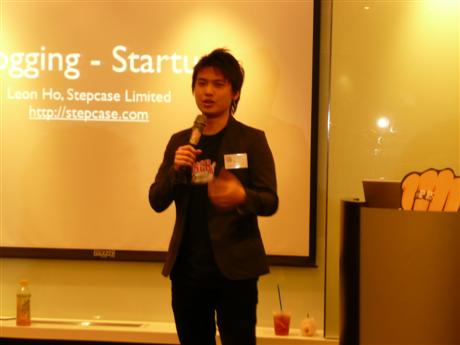Why Losing Isn’t the End: Lifehack’s Leon Ho on Building, Failing, and the Yes Virus
 While all entrepreneurs work hard, they don’t all work smart. That’s where Leon Ho’s expertise comes in.
While all entrepreneurs work hard, they don’t all work smart. That’s where Leon Ho’s expertise comes in.
In 2005, in order to collect the lessons he was learning, he founded Lifehack, which blossomed into a widely-read blog centred on productivity and other types of life advice. He then founded Stepcase, a company that builds photo apps like Steply and Chaopin.
What has he learned in the process?
Many entrepreneurs seek out mentors, take classes, and read a lot of books and articles before really taking a stab at building something. While these are all extremely important resources, there is no learning experience that trumps doing something firsthand. Real life teaches us the most valuable lessons—ones that we couldn’t have thought our ways through. It gives us real, battle-hardened, experience. Ho used to obsess over strategy.
“Naturally I am more of an over-thinking person,” he admits in an interview. “I used to analyze and come up with plan A to Z before starting to work on it. But I learned that doing is actually better than thinking. Without actual results you will not get enough real feedback on what needs to be improved. That’s why I designed this poster and put it up in our office.”
Everything else, articles, instructionals, and mentors, are compliments. A great learning experience can’t be purely composed of them without doing something yourself. Yet we often feel the need to prepare and wait—for that perfect idea, for that perfect time—before we jump ship and go all-in. Our fear holds us back.
SEE ALSO: How to be as Effective as Tim Ferriss
“My greatest fear was losing. I am a super competitive person. Whenever I played a game, I kept training until I reached a level where I can beat my friends,” recalls Ho.
“I just don’t like the feeling of losing. But as I grew older, I started to realize I cannot win all the time. There are so many people out there who are way better than me; even though I am good at what I am doing, there are so many external factors that could affect the outcome. Now I am still a competitive person, and if I lose I may not feel good for a bit, but then I try to figure out a better way to do it next time.”
The consequences of losing, or failing, are as bad as you make them out to be. It doesn’t have to be the end of the world; in fact, it can make for a very valuable lesson, which you can improve for next time. Improving is crucial to maximizing effectiveness.
To this day, in addition to running Lifehack and Stepcase, Ho still spends an hour each day learning how to become more productive. What did his days look like before, and after, implementing all of these lessons?
“I don’t remember what the exact hour-by-hour schedule looked like, but I do recall before I got into productivity, my choice of initiatives and tasks were that not good. I was more like a ‘Yes man’. Once I learned concepts such as the 80/20 rule, I really started to reject crappy ideas and tasks that cannot move the needle and focused my time on work that leads to a bigger outcome.”
Ho’s advice is matched by other adages: “When you try to say yes to everything, you end up doing nothing,” says Gary Vaynerchuk in this video.
“The difference between successful people and very successful people is that very successful people say ‘no’ to almost everything,” says Warren Buffett.
Building, failure, and focus, are the crux of Ho’s advice. Don’t let the quest for perfection build into the ultimate procrastination. Lose gracefully, learn from it, and always play to win. Learn how to say no.











